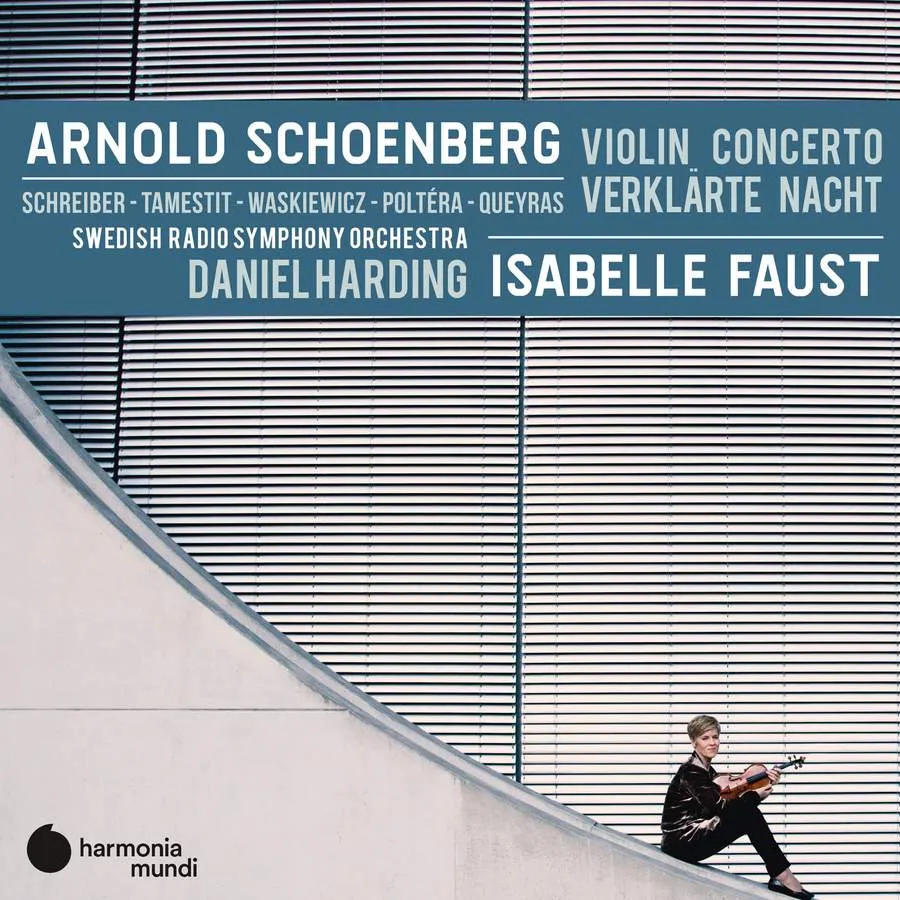
Schoenberg Violin Concerto; Verklärte Nacht Isabelle Faust, Anne Katharina Schreiber (violin), Antoine Tamestit, Danusha Waskiewicz (viola), Christian Poltera, Jean-Guihen Queyras (cello); Swedish Radio Symphony Orchestra/Daniel Harding Harmonia Mundi HMM 902341 63.12 mins
Some years ago Isabelle Faust teamed up with Claudio Abbado to deliver one of the most revelatory of all recordings of Alban Berg’s Violin Concerto. She has now achieved the same feat for Schoenberg’s rather more knotty contribution to the genre.
The secret of her success lies in her ability to bring an immense amount of poetry and fantasy to the immensely complex solo part, and to give a distinctive sense of character and clearly defined emotional trajectory to the three contrasting movements. As a result, the listener gets drawn into the drama of the musical argument rather than becoming bogged down by the sheer density of Schoenberg’s writing. Another plus for the present recording is the superb contribution from Daniel Harding and the Swedish Radio Symphony Orchestra, whose players bring the requisite emotional heft and textural transparency to the orchestral part.
In following the emotionally charged Violin Concerto with the Romantic warmth of Verklärte Nacht, you might think that we are entering a completely different world. Yet Faust and her team of star soloists work hard to realise much closer connections between the two works by adopting a leaner sound and placing the greatest emphasis on textural clarity. The net result is an interpretation that might not appeal to those hankering after a full-blooded gut-wrenching emotional experience. But there are undoubted benefits to this approach, in particular the transition from terror and anxiety to calm acceptance in the final section is adeptly handled, and at all times the ebb and flow of the musical argument keeps the listener completely mesmerised by the brilliance and urgency of Schoenberg’s work.
Erik Levi